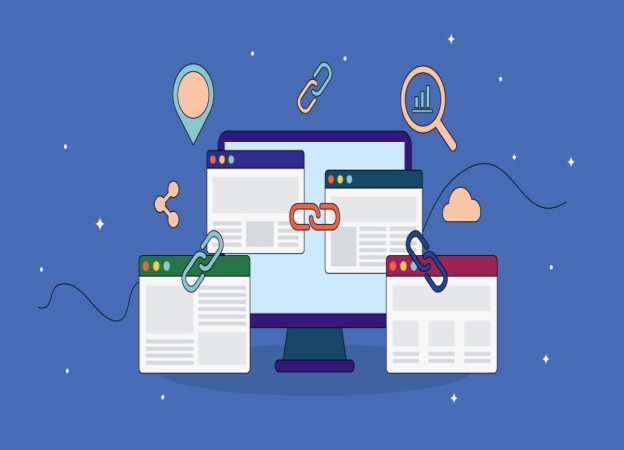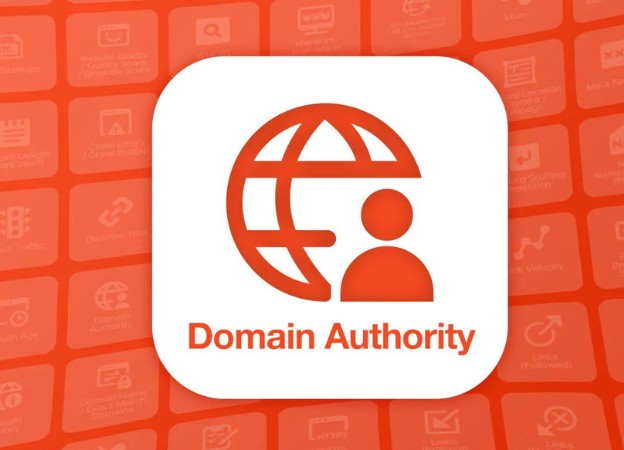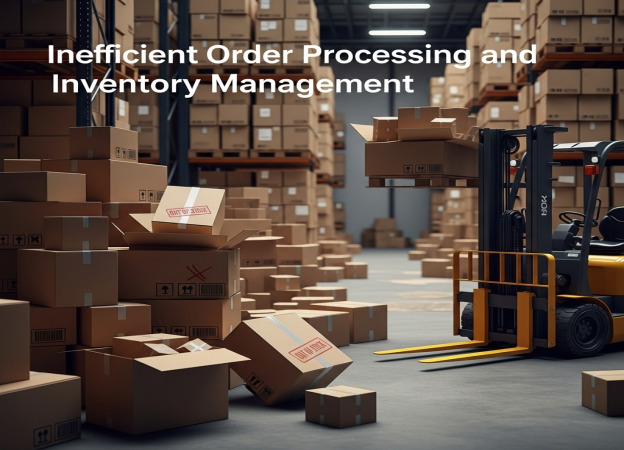The Ultimate Guide to Custom B2B System Development
Custom B2B systems offer tailored functionality and scalability unlike off-the-shelf solutions. Discover if a custom system is the right fit for your unique business needs and long-term ROI.
The Ultimate Guide to Custom B2B System Development: Is it Right for Your Business?
In the rapidly evolving landscape of business-to-business (B2B) interactions, efficiency, integration, and scalability are paramount. Off-the-shelf software solutions often fall short of meeting the unique demands of complex B2B operations. This is where custom B2B system development comes into play. This comprehensive guide will explore what a custom B2B system is, why you might choose it over pre-built alternatives, its key benefits, and how to determine if it's the right fit for your business.
What is a Custom B2B System?
A custom B2B system is a software solution specifically designed and developed to address the unique needs and challenges of a business operating in the B2B space. Unlike generic B2B platform solutions, a custom system is tailored to fit the precise workflows, processes, and requirements of your organization and its interactions with other businesses. This can encompass a wide range of functionalities, including:
- Customer relationship management (CRM)
- Supply chain management (SCM)
- Order management
- Inventory management
- E-commerce platform
- Data analytics and reporting
Why Choose a Custom B2B System Over Off-the-Shelf Software?
While off-the-shelf business software offers a quick and seemingly cost-effective solution, it often comes with limitations. Here's why a custom B2B system might be a better choice:
1. Tailored Functionality
Generic software is designed to cater to a broad audience, meaning it may include features you don't need and lack features crucial to your specific business processes. A custom system provides functionality that perfectly aligns with your unique requirements, eliminating unnecessary complexity and boosting efficiency.
2. Seamless Integration
Integrating off-the-shelf software with existing systems can be a major headache. Custom B2B systems are built to integrate seamlessly with your current infrastructure, ensuring smooth data flow and eliminating compatibility issues. This is crucial for businesses relying on multiple interconnected systems.
3. Scalability
As your business grows, your software needs to scale with it. Off-the-shelf solutions may have limitations in terms of scalability, forcing you to migrate to a new system down the line. A custom system is designed with scalability in mind, allowing it to adapt to your evolving needs without significant disruptions.
4. Competitive Advantage
A custom B2B system can provide a significant competitive advantage by enabling you to offer unique services, streamline operations, and respond quickly to market changes. By automating key processes and providing valuable insights, a custom system can help you stand out from the competition.
5. Ownership and Control
With a custom system, you own the software and have complete control over its development and maintenance. This eliminates reliance on third-party vendors and ensures that you can adapt the system to your changing needs without external constraints.
Benefits of Custom B2B Solutions
The advantages of investing in a custom B2B solutions are significant, particularly in terms of scalability, flexibility, and integration capabilities. Let's delve deeper into these key benefits:
Scalability
Scalability is perhaps the most compelling reason to opt for a custom B2B system. As your business expands, your software needs to accommodate increasing data volumes, user traffic, and transaction loads. A well-designed custom system can be easily scaled to meet these growing demands, ensuring that your operations remain efficient and responsive. Scalability also means future-proofing your investment. Instead of replacing systems every few years, your custom B2B system is designed to grow alongside your business.
Flexibility
Flexibility is another crucial advantage. Custom B2B systems are designed to adapt to changing business needs and market dynamics. You can easily add new features, modify existing functionality, and integrate with new systems as required. This level of flexibility is simply not possible with off-the-shelf software, which is often rigid and inflexible. Custom systems enable you to quickly respond to new opportunities, adapt to evolving customer demands, and stay ahead of the competition.
Integration
Seamless integration with existing systems is essential for efficient B2B operations. A custom B2B system can be designed to integrate seamlessly with your CRM, ERP, accounting software, and other critical business applications. This eliminates data silos, streamlines workflows, and provides a unified view of your business operations. Integration also improves data accuracy and reduces the risk of errors associated with manual data entry. With a custom system, you can ensure that all your systems work together harmoniously, maximizing efficiency and productivity.
When is a Custom B2B System the Right Choice?
Determining whether a custom B2B system is the right choice for your business depends on several factors. Consider the following questions:
- Are your business processes unique? If your business processes are highly specialized or require specific functionality not available in off-the-shelf software, a custom system may be the best option.
- Do you require seamless integration with existing systems? If you need to integrate with multiple systems and require a high level of data synchronization, a custom system can provide the necessary flexibility and control.
- Is scalability a major concern? If you anticipate significant growth in the future, a custom system can be designed to scale with your business, ensuring that your software can handle increasing data volumes and user traffic.
- Do you want to own and control your software? If you want to have complete control over your software and avoid reliance on third-party vendors, a custom system is the way to go.
- Is long-term ROI a priority? While the initial investment in a custom system may be higher, the long-term ROI can be significantly greater due to increased efficiency, scalability, and competitive advantage.
Key Features to Consider in a Custom B2B System
When developing a custom B2B system, it's important to consider the key features that will drive efficiency, improve customer satisfaction, and support your business goals. Here are some essential features to consider:
- User-friendly interface: A clean, intuitive interface is crucial for user adoption and productivity.
- Role-based access control: Ensure that users have access only to the information and functionality they need.
- Data analytics and reporting: Provide real-time insights into key business metrics.
- Workflow automation: Automate repetitive tasks to improve efficiency and reduce errors.
- Mobile accessibility: Enable users to access the system from any device, anywhere.
- Security: Protect sensitive data with robust security measures.
- Integration capabilities: Ensure seamless integration with existing systems.
- Scalability: Design the system to scale with your business growth.
The B2B System Development Process
The software development process for a custom B2B system typically involves the following steps:- Requirements gathering: Define the scope, goals, and functionality of the system.
- Design: Create a detailed design of the system architecture, user interface, and database.
- Development: Write the code and build the system.
- Testing: Thoroughly test the system to ensure it meets the requirements and is free of bugs.
- Deployment: Deploy the system to a production environment.
- Maintenance and support: Provide ongoing maintenance and support to ensure the system remains stable and secure.
Cost of Developing a Custom B2B System
The cost of developing a custom B2B system varies depending on the complexity of the system, the size of the development team, and the technology stack used. It's crucial to have a clear understanding of your requirements and budget before starting the development process. Consider the following factors when estimating the cost:
- Development team: The cost of hiring developers, designers, and project managers.
- Technology stack: The cost of software licenses, servers, and other infrastructure.
- Testing: The cost of testing and quality assurance.
- Maintenance and support: The ongoing cost of maintaining and supporting the system.
While the initial investment in a custom system may be higher than that of off-the-shelf software, the long-term ROI can be significantly greater due to increased efficiency, scalability, and competitive advantage.
Examples of Successful Custom B2B Systems
Numerous companies have successfully implemented custom B2B systems to streamline their operations, improve customer satisfaction, and gain a competitive edge. Here are a few examples:
- A manufacturing company developed a custom supply chain management system to optimize inventory levels, reduce lead times, and improve communication with suppliers.
- A wholesale distributor created a custom e-commerce platform to enable online ordering, track shipments, and provide personalized customer service.
- A financial services firm implemented a custom CRM system to manage client relationships, track leads, and automate marketing campaigns.
How to Get Started with Your Custom B2B System Project
If you're considering developing a custom B2B system, here are the steps to get started:
- Define your requirements: Clearly define the scope, goals, and functionality of the system.
- Choose a development partner: Select a reputable B2B software development company with experience in building custom B2B systems.
- Develop a detailed design: Work with your development partner to create a detailed design of the system architecture, user interface, and database.
- Implement the system: Develop, test, and deploy the system.
- Provide ongoing maintenance and support: Ensure that the system remains stable and secure.
By carefully planning and executing your custom B2B system project, you can create a solution that meets your unique needs and drives significant value for your business.
Code Smart Web
At CodeSmartWeb.co.uk, we design and develop powerful, scalable systems built on the Laravel PHP framework, tailored to your brand and growth goals. From interface to infrastructure, we handle the full software lifecycle—from UI design to DevOps deployment—delivering secure, performant platforms that convert.












